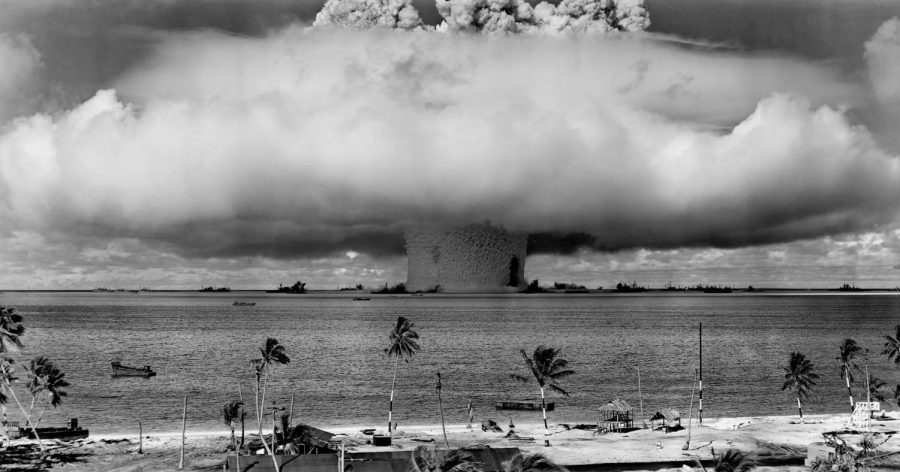Nuclear War?
Only a few weeks ago, the world’s two archenemies were on a brink of war, both heavily armed with nuclear weapons. India and Pakistan have fought three wars over Kashmir, a land both lay claim to, since their birth in 1947. Tensions have always simmered between the two countries, whether on borders or on diplomatic terms. However, the attack on 14 February led to a chain of events, in which both countries did not hesitate to threaten the use of their nuclear weapons, inciting not only violent nationalism, but a possible nuclear war.
On 14 February, there was an attack on India’s army personnel, which killed over 40 soldiers. The attack took place in Pulwama district, Jammu and Kashmir. JEM,a terrorist organization, took responsibility for the attack. JEM has been labeled as a terrorist organization, and it is said to have had many training camps in Pakistan. India retaliated claiming Pakistan’s involvement in the attack. On 26 February, India conducted a “surgical strike” in Pakistan, and claimed that it targeted a training camp and killed about 350 terrorists. Pakistan insisted that there were no deaths, although admitted the violation of its airspace and promised its own strike.
The tension worsened when Pakistan entered Indian airspace and shot down an Indian fighter jet and captured their pilot. Eventually, there was outrage on both sides, as there was an exchange of gunfire on borders, while diplomatically, there were threats of war fired from both sides.
However, the threat of impending war waned as Pakistan released the captured Indian pilot as a gesture of peace and life came to a normal routine, after a heavy artillery exchange, yet there remains a strain among the two nations. The alarming issue here is the possession of nuclear weapons by both countries. The possibility of nuclear war between countries cannot be ignored. Both nations are extremely nationalistic and spend billions of dollars on their arsenal, and any severe tension over Kashmir could always push the region into devastation.
Even a limited nuclear war would mean deaths of millions of people, along with obvious destruction of infrastructure. But that’s just not it. The destruction of dams would mean floods, while there would be a risk of spreading nuclear radioactive debris to other countries. Moreover, there is a danger of environmental damage, as smoke would block sunlight from reaching Earth, inducing a nuclear winter. Billions of people could suffer from starvation as crop yield would lower drastically. Furthermore, conflicts between two countries with powerful allies always have a risk of turning into a global crisis, which could mean the end of civilization.
World powers have often intervened between India and Pakistan, especially the U.S., whose presidents have often played an important role in keeping the balance in the region. But this time the Trump Administration played bystander, amidst this crisis, and kept its attention elsewhere. This inattention has attracted criticism from the world, as it was a grave crisis which could have pushed the world towards chaos.

